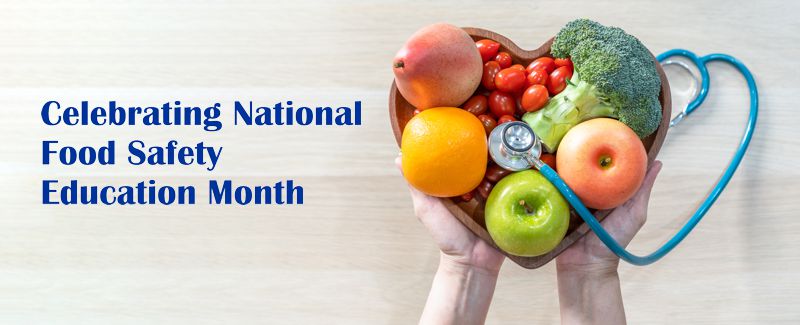 September marks National Food Safety Education Month, a crucial time for raising awareness about the importance of food safety practices. Initiated by the Partnership for Food Safety Education, this observance is a reminder that foodborne illnesses can affect anyone, regardless of age or health. At PJRFSI, we recognize the significance of this month and the vital role education plays in preventing foodborne illnesses.
September marks National Food Safety Education Month, a crucial time for raising awareness about the importance of food safety practices. Initiated by the Partnership for Food Safety Education, this observance is a reminder that foodborne illnesses can affect anyone, regardless of age or health. At PJRFSI, we recognize the significance of this month and the vital role education plays in preventing foodborne illnesses.
Food safety is more than a set of guidelines—it’s a commitment to protecting public health. Each year, millions of people experience foodborne illnesses that could have been prevented through proper food handling and preparation. Whether you’re a professional in the food industry or cooking at home, understanding and practicing food safety is essential to keeping yourself and others safe.
National Food Safety Education Month emphasizes several key practices to ensure food is handled, prepared, and stored correctly:
- Clean: Always wash your hands and surfaces often. Proper cleaning prevents the spread of bacteria that can contaminate food.
- Separate: Keep raw meat, poultry, seafood, and eggs separate from ready-to-eat foods. This prevents cross-contamination, which can lead to foodborne illnesses.
- Cook: Cook foods to the right temperature to kill harmful bacteria. Use a food thermometer to ensure your food reaches a safe internal temperature.
- Chill: Refrigerate promptly. Keeping perishable foods at the right temperature slows the growth of harmful bacteria.
Throughout September, organizations like the Partnership for Food Safety Education provide valuable resources to help individuals and businesses improve their food safety knowledge and practices. From educational videos and infographics to community events and webinars, there are numerous opportunities to learn more about keeping food safe.
At PJRFSI, we support these initiatives and encourage our clients and partners to take advantage of these resources. By staying informed and vigilant, we can collectively reduce the incidence of foodborne illnesses and promote a safer food supply chain. For more information, contact a project manager at [email protected].
Leave a Reply
You must be logged in to post a comment.